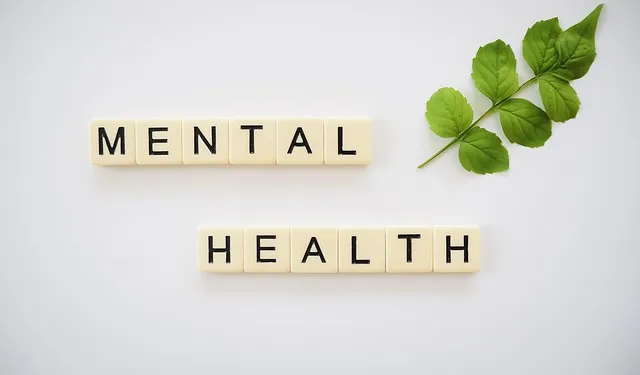The media's portrayal of mental illness significantly shapes public perception, either reinforcing or alleviating stigma. Inaccurate or stereotypical depictions in popular culture hinder understanding and empathy for individuals with mental health conditions, making it harder for them to seek help. Strategies like burnout prevention for healthcare providers and promoting emotional intelligence can mitigate these effects. Northglenn residents with Kaiser coverage for mental health therapy benefit from comprehensive services that include therapy, counseling, crisis intervention, and coping skills development through workshops. Positive media representation, informed by experts and lived experiences, is crucial for fostering understanding and reducing stigma. Incorporating mindfulness meditation and sharing resources like Kaiser's Northglenn mental health therapy coverage can subtly educate audiences about self-care and available treatments, contributing to broader stigma reduction efforts.
In today’s media landscape, the representation of mental illness plays a pivotal role in shaping public perception and reducing stigma. However, inaccurate or limited portrayals can perpetuate harmful stereotypes. This article explores how media can challenge and overcome these barriers through informed storytelling. We delve into the impact of media on mental health stigma, specifically examining insurance coverage for mental health therapy in Northglenn and Kaiser. By presenting solutions to enhance positive representation, we aim to guide a more inclusive narrative that reflects reality.
- Understanding the Impact of Media Portrayal on Mental Health Stigma
- Kaiser and Northglenn: Uncovering Insurance Coverage for Mental Health Therapy
- Solutions to Enhance Positive Mental Illness Representation in Media
Understanding the Impact of Media Portrayal on Mental Health Stigma

The media’s portrayal of mental illness can significantly shape public perception and contribute to either alleviating or perpetuating stigma. When individuals with mental health conditions are rarely, inaccurately, or stereotypically depicted in popular culture, it reinforces societal biases and barriers to access for support. This misrepresented narrative often leads to a lack of understanding and empathy from the general public, making it challenging for those affected to seek help. For instance, media consistently portrays mental illness as an extreme, sporadic event, ignoring the prevalence of more common yet manageable conditions.
In this context, Northglenn residents with Kaiser coverage for mental health therapy can face varied experiences depending on the accurate or inaccurate representations they witness in the media. Burnout Prevention Strategies for Healthcare Providers and promoting Emotional Intelligence can help mitigate these effects by fostering a culture of informed care. Encouraging emotional regulation through education and open dialogue challenges stereotypes, reduces stigma, and promotes early intervention, ultimately enhancing access to and effectiveness of mental health services.
Kaiser and Northglenn: Uncovering Insurance Coverage for Mental Health Therapy

In Northglenn, residents often wonder: Does Kaiser cover mental health therapy? Understanding insurance coverage is a crucial step in accessing much-needed support for mental well-being. For those under Kaiser, the answer can be encouraging. The organization provides comprehensive mental health services, including therapy and counseling, as part of its healthcare plans. This ensures that individuals facing anxiety, depression, or other mental health challenges have a safety net during their journey to recovery.
Furthermore, crisis intervention guidance and coping skills development are integral components of Kaiser’s offerings. They organize stress management workshops within the community, empowering residents with effective coping strategies. By leveraging these resources, Northglenn residents can actively manage their mental health while also learning valuable techniques to navigate life’s stressors, ultimately fostering a healthier and more resilient community.
Solutions to Enhance Positive Mental Illness Representation in Media

Media plays a significant role in shaping societal perceptions about mental illness, and enhancing positive representation is crucial to fostering understanding and reducing stigma. One effective solution is to promote diverse and accurate portrayals of individuals with mental health conditions, ensuring their stories are told authentically and empathetically. This can involve consulting with mental health experts and individuals living with these conditions during the creative process. By doing so, media outlets can avoid stereotypes and create more nuanced characters or narratives that reflect the complexity of mental illness.
Additionally, incorporating practices like mindfulness meditation into storylines or presenting resources for support (e.g., Northglenn does Kaiser cover mental health therapy) can subtly educate audiences about self-care and available treatments. Encouraging open dialogue about mental health through compelling media content can lead to increased awareness and better understanding of the challenges faced by those in need, ultimately contributing to more effective risk management planning for mental health professionals and broader mental illness stigma reduction efforts.
Media portrayal plays a pivotal role in shaping public perception about mental illness. By implementing more inclusive and accurate representations, we can challenge stigma and foster understanding. While initiatives like those discussed for Northglenn and Kaiser addressing mental health therapy coverage are steps in the right direction, there’s still much to be done. We must encourage media outlets to prioritize positive and nuanced storytelling about mental illness, ensuring a future where everyone receives support and care without fear of judgment.






